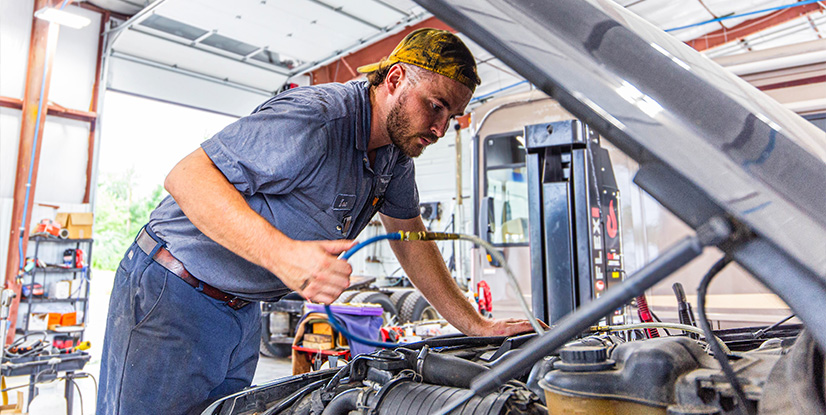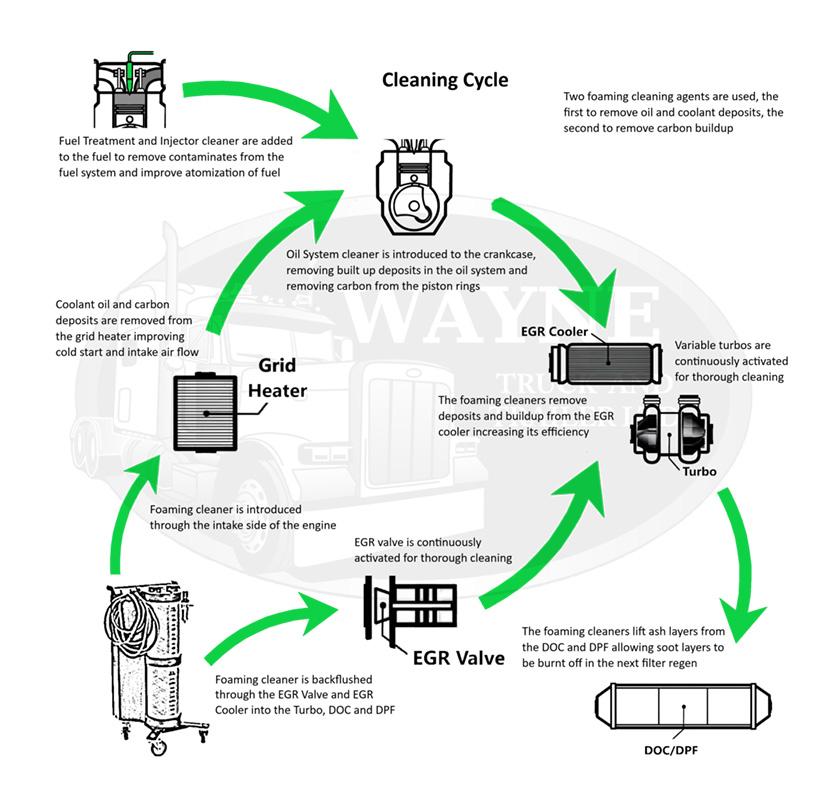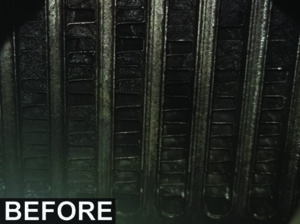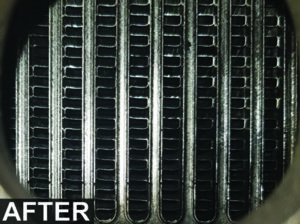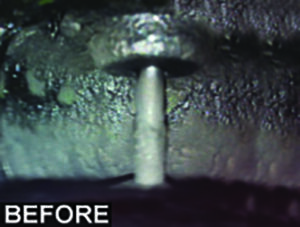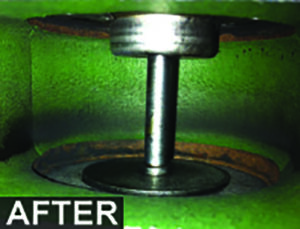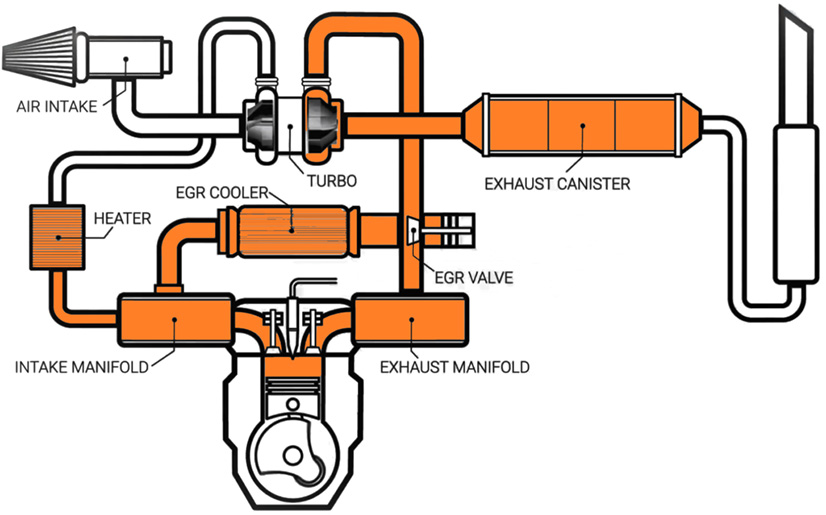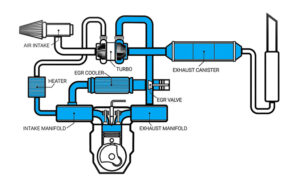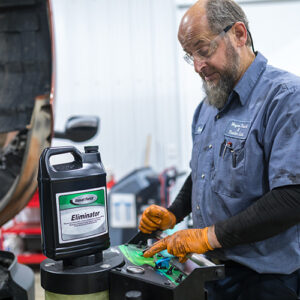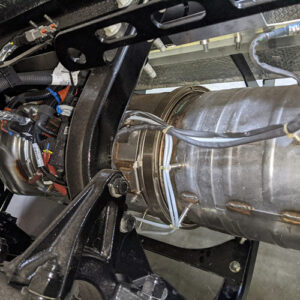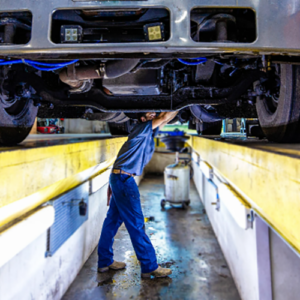Stop Wasting Money!!! How Diesel Emissions Cleaning Saves On Truck Repairs
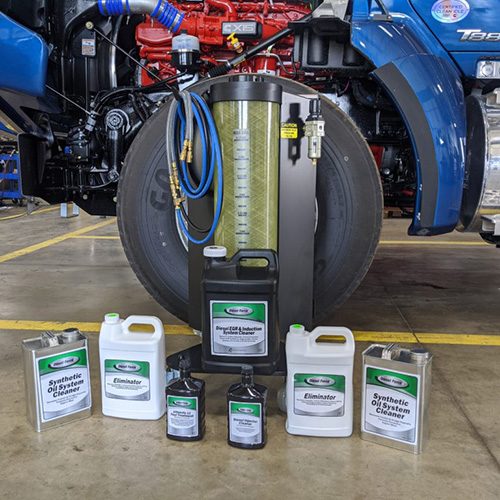
If you’re a commercial truck driver or fleet manager, you know that reducing expensive repairs for your heavy-duty diesel vehicles can be challenging. But there’s a solution: adding diesel emissions cleaning to your preventative maintenance program is the key to saving money!
Diesel Emissions Cleaning (DEC) effectively keeps trucks running efficiently and in peak condition with these modern emissions systems.
Not only does DEC decrease harmful exhaust emissions, but it also helps preserve the engine’s life cycle by reducing wear and tear.
Table of Contents
What is Diesel Emissions Cleaning?
Diesel emissions system cleaning works by removing contaminants from the diesel particulate filter (DPF) through a process called regeneration.
In this process, the built-up pollutants are oxidized and removed from the filter, restoring its function to trap particulates.
There are two types of regeneration: passive and active.
- Passive regeneration occurs naturally while driving when the exhaust temperature is high enough to burn off the soot in the DPF.
- Active regeneration occurs when the vehicle’s computer signals the emissions system to initiate a regeneration cycle, which involves increasing exhaust temperatures to burn off the soot.
Wayne Truck and Trailer’s diesel emissions system cleaning service injects a specialized cleaning solution into the engine.
This solution helps remove stubborn contaminants that may not have been removed through passive or active regeneration.
The cleaning solution, when combined with the heat generated by the vehicle’s engine, helps to burn off the remaining soot and increase the filter’s efficiency.
Reduce Wear and Tear on Engine Components with Professional Emissions Cleaning
One of the most important aspects of maintaining a healthy engine is ensuring the proper functioning of the diesel emissions system. It is essential to keep it free of carbon build-up to avoid causing further wear and tear on crucial components of the engine.
A diesel engine’s emissions system consists of the:
- Diesel Particulate Filter (DPF)
- Selective Catalytic Reduction (SCR)
- Exhaust Gas Recirculation (EGR)
However, these components can become clogged with soot over time, preventing them from functioning correctly.
For engines that don’t have a healthy emissions system, there can be a significant increase in soot deposits in the:
- engine’s valves
- combustion chamber
- turbocharger
These soot deposits lead to decreased power, increased fuel consumption, and shorter engine life.
Moreover, vehicles that frequently undergo short trips or do not reach operating temperatures regularly develop carbon buildup in the emissions system.
Thus, cleaning the diesel emissions system regularly is necessary to remove soot buildup and protect engine components from excess wear and tear.
Diesel Emissions Cleaning Improves Fuel Efficiency
Cleaning your vehicle’s diesel emissions system is essential in maintaining optimal fuel efficiency.
Over time, diesel particulate matter, or soot, builds up in the exhaust system, reducing airflow and increasing the amount of fuel being used.
As the engine struggles to push exhaust gases out, it must work harder to generate power.
Consequently, fuel consumption increases, ultimately increasing emissions and putting more strain on the engine.
Removing carbon build-up and restoring proper airflow results in a leaner air/fuel mixture that burns more efficiently.
This means that diesel engines can deliver more power with less fuel, a significant savings for fleet operators and independent truckers.
Additionally, improved fuel efficiency means lower fuel costs and a more sustainable budget.
Extend EGR Valve Life and Improve EGR Cooler Efficiency
Proper emissions cleaning will help extend the lifespan of your EGR valve and improve EGR cooler efficiency.
The EGR valve cleaning process removes harmful soot particles and debris that can accumulate in this valve.
The accumulation of pollutants can cause the EGR valve to malfunction or even suffocate.
By cleaning the EGR valve, you can optimize the engine’s performance, which positively impacts an EGR cooler’s efficiency.
The EGR cooler is the device that helps to cool the hot exhaust gases before they enter the engine.
It passes the gasses through a metal heat exchanger, which cools them down by transferring the heat to the coolant system.
As the heat exchanger develops carbon build-up, it reduces its agility to cool the exhaust gasses entering the engine. In return, you get a less efficient burn, increasing fuel consumption and carbon build-up.
Extend the Lifespan of DPF Systems with Regularly Scheduled Emissions Cleanings
Diesel Particulate Filter (DPF) systems are a crucial part of a commercial vehicle’s diesel emissions system and are designed to reduce carbon monoxide emissions.
Over time, the DPF filters naturally collect ash and soot from the engine. This buildup can lead to blockages, decrease the system’s efficiency, and reduce the life of the filter.
If not taken care of promptly, these blockages may cause the engine to malfunction, leading to unscheduled downtime, costly repairs, and reduced fuel efficiency.
Having your diesel truck’s emissions system cleaned regularly by experienced technicians can prevent such scenarios from occurring.
Cleaning the diesel emissions system extends the lifespan of the DPF filter by minimizing “regeneration events.” In the filter regeneration process, excessive soot is burnt off the DPF system, restoring it to its optimal state.
Regular DPF cleaning eliminates the amount of clogging and blockages, making the engine’s operation more efficient and increasing fuel economy.
Furthermore, maintaining a clean DPF reduces the risk of unplanned maintenance and repairs requiring a new diesel particulate filter.
Maintaining SCR Systems with Proper Emissions Cleaning
Maintaining your diesel emissions system through regular cleaning is critical to keep your SCR system in good condition.
The SCR system, also known as the Selective Catalytic Reduction System, reduces harmful diesel engine emissions. The system is designed to convert dangerous nitrogen oxide (NOx) into harmless nitrogen and water vapor through a DOC (diesel oxidation catalyst).
However, if the diesel emissions system is not maintained correctly, it may cause severe damage to the SCR system.
When diesel fuel is burned, it produces carbon deposits that can accumulate within the engine’s emissions system.
Over time, these deposits block the system’s passages and cause the SCR system to malfunction, leading to costly repairs.
By cleaning your vehicle’s diesel emissions system, you can remove these harmful deposits and keep the SCR system functioning correctly.
A cleaner SCR system will help your engine to perform better and ensure that you meet regulatory standards.
Make Emissions Cleaning Part of Your Regularly Scheduled Maintenance
It’s no secret that diesel emissions systems are complex. However, these systems ensure your vehicle meets federal emissions standards and can stay on the road.
To keep your vehicle running smoothly, have your diesel emissions system cleaned as part of your regular vehicle maintenance for best results.
Over time, harmful deposits can build up in your vehicle’s diesel emissions system and cause damage.
This buildup can negatively impact your engine’s performance, decrease fuel efficiency, and even contribute to costly repairs.
Regular cleaning of the diesel emissions system can help prevent these problems and extend the life of your vehicle.
Cleaning the diesel emissions system involves removing deposits and buildup from the system’s components, such as the:
- Diesel Oxidation Catalyst (DOC)
- Diesel Particulate Filter (DPF)
- Selective Catalytic Reduction (SCR) components.
This process helps improve engine performance and fuel efficiency, reduces regeneration cycles, and check engine lights.
Conclusion
Maintaining a healthy diesel emissions system is a great way to:
- extend the longevity of an engine
- increase fuel mileage
- reduce the vehicle’s overall operating cost
It is recommended to have the diesel emissions system inspected and cleaned every 100,000 miles to keep your vehicle performing at its best.
At Wayne Truck and Trailer, our experienced technicians are skilled in performing diesel emissions system cleaning as part of our regular vehicle maintenance services.
We understand the importance of keeping your vehicles on the road – and not in the shop – so we offer quick and professional cleaning services to get you back to business as soon as possible.
Don’t wait. Schedule your Diesel Force emissions system cleaning today, and rest assured that your vehicle will operate at its best.

